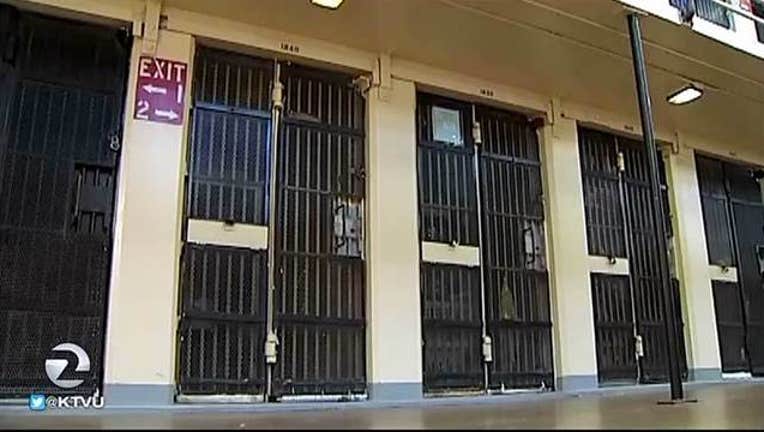Man sentenced to life in prison for rape and deadly beating of 23-year-old woman in Oakland

OAKLAND, Calif. (BCN) - A married father of three children was sentenced today to life in prison without the possibility of parole for raping and beating to death a woman near Lake Merritt in Oakland last year.
Prince "Frank" Tsetse claimed today, as he did during his trial last month, that he didn't rape or kill 23-year-old Kimberly Robertson, who was found beaten to death in the 1900 block of Third Avenue outside the Francis Marion Smith Recreation Center at 6:40 a.m. on April 5, 2014.
But Alameda County Superior Court Judge C. Don Clay told Tsetse that jurors, who deliberated for less than two hours before convicting him on Nov. 25, "came to the conclusion that you were just lying and you perjured
yourself" when he testified that he didn't kill Robertson.
Clay said, "They decided that you raped and killed her."
Tsetse was convicted of first-degree murder and the special circumstance of committing a murder during a rape.
Clay said he had hoped that when Tsetse addressed the court today he would apologize for his actions and admit that he did something wrong, but he told Tsetse, "I don't think you have that kind of heart."
Tsetse, a native of Ghana in West Africa who moved to Oakland in 2007, admitted during his trial that he had sex with Robertson early on the morning of April 5, 2014, after picking her up at a bus stop near East 18th Street and Park Boulevard, but said he didn't kill her.
Tsetse said, "I didn't kill this woman, all I had was sex with her."
Tsetse said Robertson, who was in a criminal justice program at Heald College in San Francisco and had a daughter who's now 4 years old, told him she was "working" and offered to have sex with him for money.
He said he drove with Robertson to a nearby residential neighborhood, where they had sex in the back seat of his car.
Tsetse's lawyer, Ernie Castillo, told jurors that Tsetse couldn't have been the person who killed Robertson because she was still alive when he dropped her off at about 3 a.m. in the area where she later was found dead.
Castillo admitted that Tsetse's DNA was found on Robertson, who had moved to Oakland from Texas only six months earlier, but said there also was DNA from another man who was never identified or found and he suggested that Robertson may have been killed by that man.
Castillo said the prosecution didn't prove who killed Robertson beyond a reasonable doubt and that there weren't any eyewitnesses to the crime.
Prosecutor Stacie Pettigrew conceded that her case is built on circumstantial evidence but said the evidence against Tsetse is strong and she believed the only reasonable conclusion was that he was guilty.
Pettigrew said that among the incriminating pieces of evidence against Tsetse are that his wife had told him earlier that night that she didn't want to see him anymore because he'd been unfaithful, that his red Toyota 4Runner SUV was seen on surveillance video footage circling the area where Robertson was picked up, that he was the last person to see her alive and that he dropped her off in the same place where she was found dead.
The prosecutor told jurors that she thinks Tsetse stole Robertson's cell phone and jewelry in addition to killing her.
Pettigrew said that when police found Robertson, she had been badly beaten in her face and head and her hands and forearms had multiple bruises, indicating she had tried to fight off an attacker.
Referring to Robertson, her sister Marquita Martin told Tsetse today, "You had a choice -- you didn't have to kill her."
Martin said, "I can never replace my sister. My life will never be the same."
Robertson's father, John Robertson, who traveled from Texas, also spoke at Tstese's sentencing.
Tsetse said, "I didn't do this. I've been convicted for a crime I didn't do." Tsetse said Robertson "was a beautiful person" and "didn't deserve to die."

